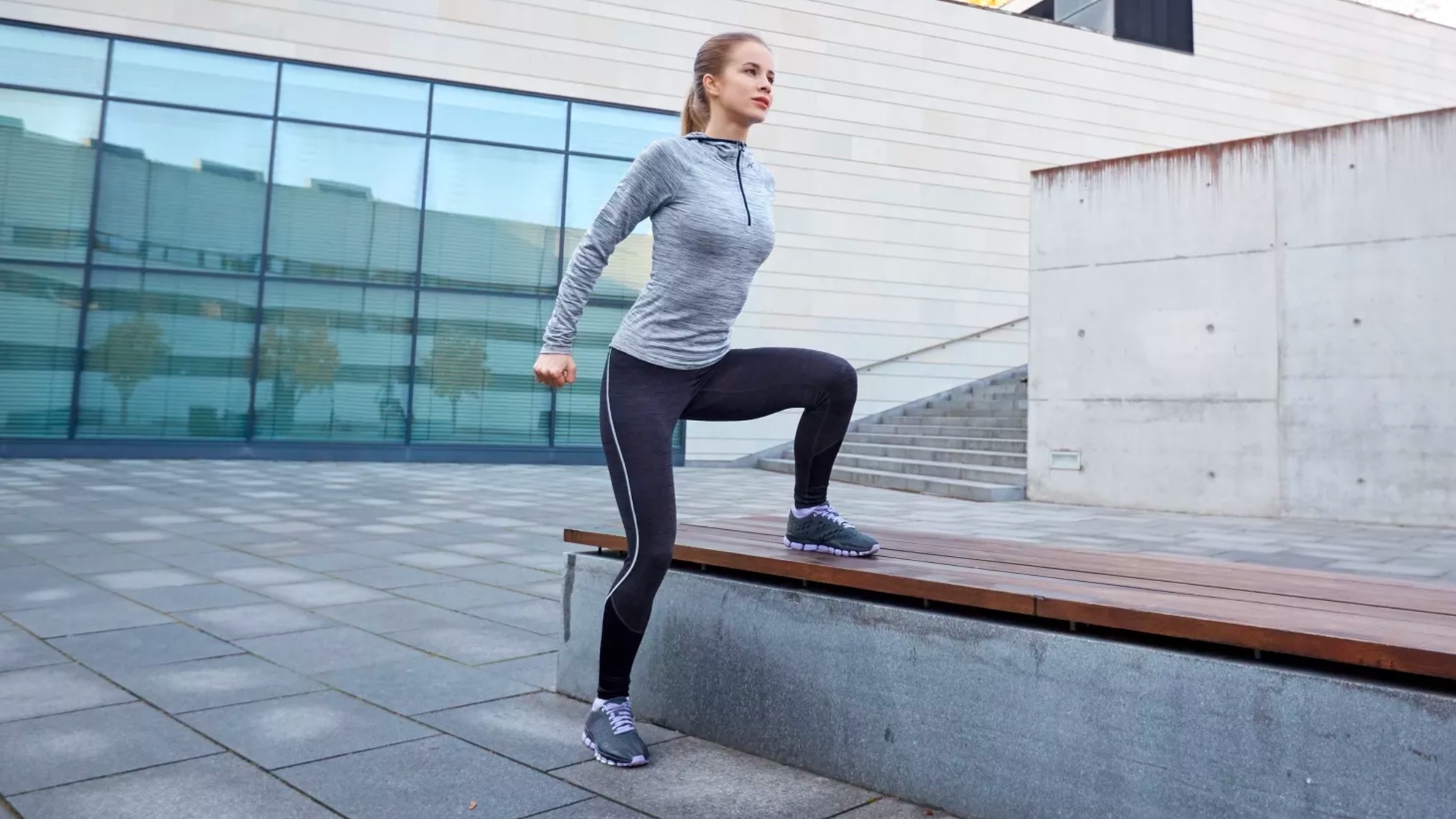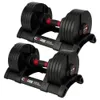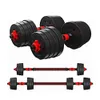I did 50 weighted lateral step-ups every day for a week — here’s what happened to my body
The basic move is tough enough, but adding a dumbbell was a step into the unknown

I’m no stranger to the basic step-up exercise; you know, the one performed facing a step or bench, which, done properly, reminds you of taking two steps at once when climbing the stairs full of youthful athleticism.
But I’d never tried the lateral step-up, where you stand beside the bench, step up, then down and so on. I’d also never attempted either version while holding a set of the best adjustable dumbbells. I sensed a challenge, and my senses were correct. Here’s what happened when I added 50 lateral step-ups daily to my exercise routine for one week.
What are weighted lateral step-ups?
The lateral step-up targets the quadriceps, hamstrings, glutes, hip flexors and core, and helps improve balance. One study published in the Journal of Strength and Conditioning Research found the move works the gluteus maximus and medius harder than the basic squat, and adding weight into the mix just makes everything a little tougher and more effective.
Crucially, lateral step-ups are a unilateral exercise — you work one leg at a time — which is a sure way of discovering if you have any imbalances. This doesn’t mean you often stumble about idiotically, but that one of your legs may be stronger than the other; it’s certainly the case with me as my right leg is weaker than my left, which I learned when doing a single-leg seated squat for a week.
I’ve been working on the imbalance since that revelation, so I was quietly confident that I'd be challenged equally on both sides no matter how hard I’d find the move. As it turns out, I found the exercise somewhat harder on the right side.
How to do a weighted lateral step-up
Consult a medical professional if you have any concerns before trying this move. If you have a knee injury, wait until you’ve fully recovered before trying it.
I’m well aware that many people who want to exercise don’t go to a gym, so I did this move at home using two kitchen benches (one is slightly higher than the other, which makes for great amusement when I have friends over for dinner). You can also do it on a park bench or a low wall.
- Stand with your right side facing a bench, box, or step holding a weight in your left hand or using both hands. You can also rack a pair of dumbbells or kettlebells to your shoulders
- The bench should be knee-height or a little lower. I don’t recommend using a chair or other unstable platforms
- Raise your right leg and position it flat on the bench without turning toward the bench. Your leg should form a 90-degree angle, or close to it
- Push through your right foot to stand until both feet are level
- Slowly re-bend the right knee to lower your left leg back to the ground, landing gently on the ball of your foot
- That’s one rep. Aim for 10-15 on the right leg, then switch sides.
With my weights at the ready, here's what I learned from doing this exercise every day for one week and the benefits.
Go high, go low, but go
I knew lateral step-ups would be more difficult than basic step-ups, purely because of body position, so with an uncharacteristic acknowledgment of my limits, I began the week using the slightly lower bench, which reached just below my knees.
I held a 10lb weight and, while I managed 25 on each side, my legs were wobbly afterward and I was out of breath. By midweek, I was still hitting 50 reps but it had become easier, so I began eyeing up the bench that’s an inch or so higher.
On day four I gave it my best shot, but even that little extra height caused problems. I had to draw the line at 20 per side and my quads were trembling with the effort, as if scared I was going to ask them to try harder. I did so, the day after, and they rose to the challenge 25 times each, and kept it up until the end of the week, though it wasn’t easy.
The day after the challenge finished, I returned to the lower bench, just for comparison, and was hardly bothered by two sets of 30. It was yet another reminder that you must keep challenging your body — and trust it.
I kept my eye on the ball
You’ll almost certainly land on the ball of your foot each time you lower to the start position; it’s natural and helps you land lightly. What you want to avoid is ‘toeing off’ by pushing into your standing leg as you begin to rise again, which is also natural.
All the work should come from the bent leg on the box, so I focused on driving through the entire foot of my working leg and controlling the descent, which is just as important as rising smoothly.
My verdict on doing 50 weighted lateral step-ups every day for one week
This is a first-class move, with or without weights, and one you can do almost anywhere. It can boost strength, build muscle and help iron out imbalances in your leg muscles.
Using the higher bench remained a tough challenge, suggesting I have more work to do — and I’m up for that. One final thing: if you have to use a kitchen bench, wait until your guests have gone home.
More from Tom’s Guide
- Forget the gym — I tried this 20-minute equipment-free Pilates workout to strengthen my core and improve my posture
- You don’t need squats to strengthen your hips, glutes and quads — just this one bodyweight exercise
- You don't need planks to build a stronger core, just this 4-move bodyweight abs workout
Sign up to get the BEST of Tom's Guide direct to your inbox.
Get instant access to breaking news, the hottest reviews, great deals and helpful tips.
John is a writer and editor based in London. He was worked for magazines such as Runner’s World, Men’s Health, Women’s Health and Cosmopolitan. A keen runner, what he lacks in ability he makes up for with enthusiasm and excuses.





